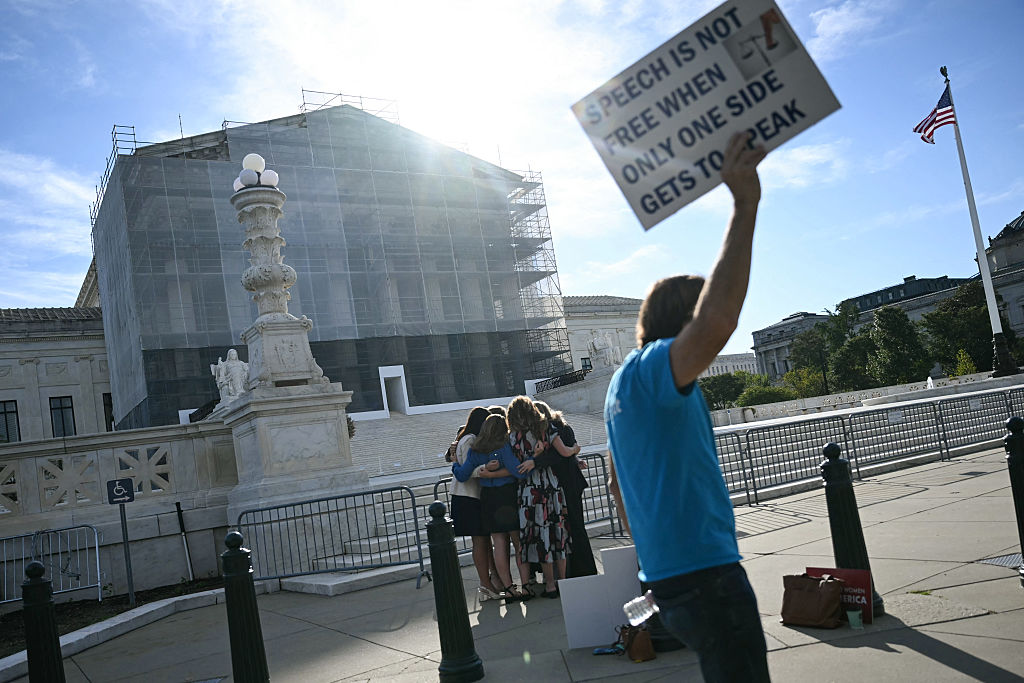In 2014, Sandra Y.L. Korn, a Harvard undergraduate, published a column in the Harvard Crimson, in which she denounced “The Doctrine of Academic Freedom.” Korn’s preferred alternative was what she called “academic justice.” Under this doctrine, a university would drop the silly pretense of letting proponents of dumb, bigoted or politically naive ideas have their say. Instead, Korn asked, “If our university community opposes racism, sexism and heterosexism, why should we put up with research that counters our goals simply in the name of ‘academic freedom?’”
Korn’s screed provoked a lot of attention. Defenders of the old order of liberal exchange of ideas and open debate turned out in force to argue against her vision of a place where “students, faculty and workers” would organize “to make our universities look as we want them to do.” This included steps such as denying an appointment to a scholar from India whose opinions about Indian Muslims she found “hateful” and organizing campus feminists to stop Harvard professor Harvey Mansfield “from publishing further sexist commentary.”
Korn’s article had the virtue of saying out loud what many radical left students believed but were too cautious to declare in a space where people across the country would read it. Her declaration of war against academic freedom, of course, was met with stout refutations from liberals, conservatives, libertarians, socialists and many others who upheld the ideal of the university as governed by respect for free expression and reasoned debate. John Stuart Mill rose from his grave and pointed his boney finger at the fatuity of thinking you can win an argument by silencing your opponents.
Sandra Korn, buoyed by the publicity, graduated and went on to become an assistant editor at Duke University Press and a regular tweeter on justice in Palestine, collective liberation and queer Jewish community.
Korn lost the argument, but judging by University of Virginia senior Emma Camp’s op-ed in the New York Times this week, “Self-Censorship Is Stifling Campuses,” Korn won the war. Sort of. Today’s campus is effectively ruled by those who present themselves as champions of something like “academic justice.” True to the spirit of what we might call “Kornery,” they see no need to tolerate opinions that differ from their own superior and supposedly “just” views. They trample on dissent gleefully and are full of righteous indignation towards anyone who would venture even a slight divergence from the prevailing dogmas of the left.
Emma Camp gained access to the op-ed page of the New York Times presumably because she announced herself as “a liberal who has attended abortion rights demonstrations and written about standing up to racism.” We see her at the outset meeting with the professor who teaches the course she is taking on “gender and sexuality.” We get it. Camp finds the ruling campus conformity suffocating, but she is mostly in agreement with the dogmas, just not the way they are enforced.
You might think that Camp’s mild dissent from Kornery would be overlooked by the new guardians of public virtue. You would be grossly underestimating the rigor of those guardians. Someone got hold of Camp’s essay several days before it was even printed and unleashed a firestorm of angry denunciation. Not all of it, however, was vituperative and angry. Some of it was controlled and even clever on its way towards dismissing Camp’s complaint about life under Kornist supervision.
Claire Potter writing at Political Junkie, (“Is Emma Camp Correct That College Students Silence Themselves?“) praises the young woman’s ability to write, but then catches the irony: how can someone so articulate complain about being silenced? “Camp does not appear to be afraid to speak her mind.” Camp is really just complaining about ordinary conformity and engaging in a little game. “Why,” asks Potter, “is the American media so addicted to stories about beleaguered young people whose free speech — and thus, a real education — is stolen by elusive, autocratic others? It is, as they say, a trope — and it is unclear to me whether or why it represents anything about American higher education except our comfort in telling the same story repeatedly.”
Of course, the reason it may be repeated is that it is true, and it doesn’t seem to be going away. The Chronicle of Higher Education ran an article by Oyin Adedoyin, who attempted to put the controversy in perspective. She observed that “many academics suggested that Camp’s account lacked nuance and that she was merely complaining because her peers didn’t agree with her.” But Adedoyin acknowledged that some data supports Camp’s contention about pervasive self-censorship on campus. She cites a survey of 20,000 students in which 60 percent said they withheld some opinions for fear of how others would react. But she gives more weight to the testimony of those who say the problem is overblown.
One dimension of the story is that Camp interned at the Foundation for Individual Rights in Education, or FIRE, which is essentially a libertarian free-speech absolutist advocacy group. Though my organization, the National Association of Scholars, is not always on the same page as FIRE, we are allies in many campus disputes. We differ in the priority NAS places on the pursuit of truth as a principle that conditions academic freedom. But be that as it may, FIRE has been on the forefront of the right for free expression on campus since it was founded in the 1990s. But because its position on free expression is at root anti-Kornist, FIRE finds itself hosed as a “right-wing organization.”
FIRE doesn’t like this, but we conservatives should be grateful for the gift that the campus left has offered: it wants to define support for freedom of expression as something only conservatives care about. John Stuart Mill might want to grab his shroud and climb back into his grave. That great champion of liberalism would find it impossible to recognize his progeny.
Can I leave this topic without a word or two on the substance of the Camp-FIRE position? Another log to keep it burning? No, I would have to say this: Emma and her fellow students who have suffered public shaming or lesser forms of shut-up-and-conform admonitions face very real and serious challenges. It is easy for adults at a distance from campus to say, “Stand your ground. Speak up. Don’t be bullied.” But as far as the students can see, they are in peril of having their whole lives blighted by the cancel tactics of the left.
This is reputational warfare, and the labels stuck on people at age eighteen-to-twenty-one can follow them for decades to come. We see this every day in the exhumation of old Facebook posts and the like. A slander can have the shelf-life of an Egyptian mummy. And a willingness to defy the herd mentality on issues such as race, sex, transgenderism, climate, guns and a hundred others may reverberate through graduate study and career.
Speaking up, as Camp writes, takes courage, and if too few speak up, it may simply be reckless. It will take more than speaking up to defeat today’s Korn-topia. It will take an awakening to the real nature of the “social justice” ideology on which this censorious regime is founded. That in turn would require a fundamental reorientation of our colleges and universities that have fallen under the spell of a false ideal. When Camp realizes that, she will know what to do next.

























